A small peptide called CAQK, composed of just four amino acids, has shown remarkable neuroprotective effects in mouse and pig models of traumatic brain injury.
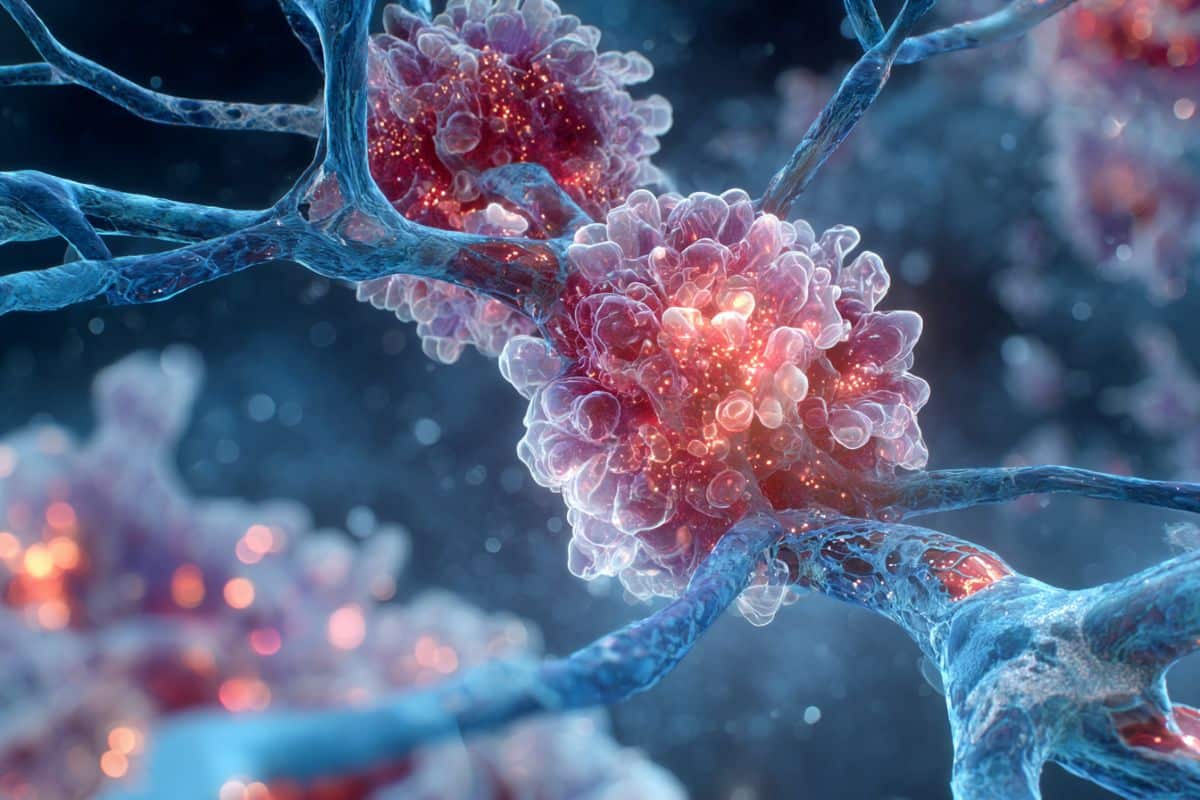

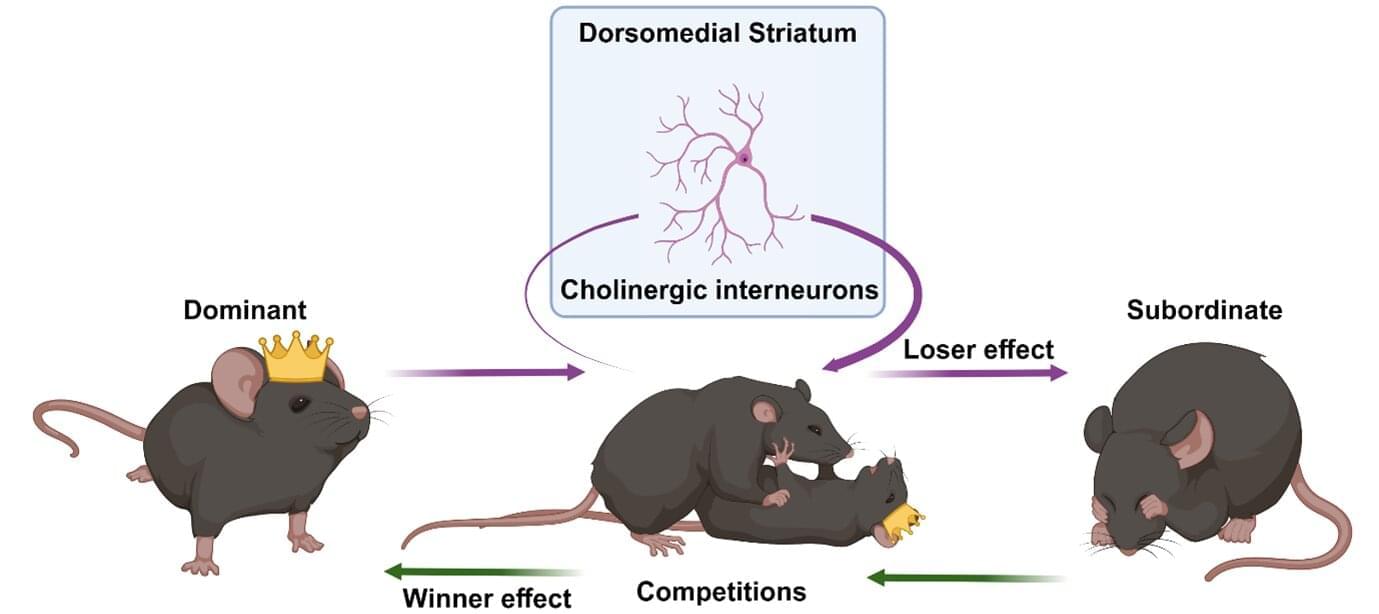
Social hierarchies are everywhere—think of high school dramas, where the athletes are portrayed as the most popular, or large companies, where the CEO makes the important decisions. Such hierarchies aren’t just limited to humans, but span the animal kingdom, with dominant individuals getting faster food access, higher mating priority, and bigger or better territories. While it’s long been thought that winning or losing can influence the position of an individual within a social hierarchy, the brain mechanisms behind these social dynamics have remained a mystery.
In iScience, researchers from the Okinawa Institute of Science and Technology (OIST) investigate the neurological basis of social hierarchy in male mice, pinpointing the neurons they believe crucial in determining these social hierarchy dynamics.
“You may think that being dominant in the animal kingdom is all about physical attributes, like size. But interestingly, we’ve found that it seems to be a choice, based on previous experience,” said Professor Jeffery Wickens, head of the Neurobiology Research Unit at OIST and co-author on this study. “The brain circuitry involved in these decisions is well conserved between mice and humans, so there are likely useful parallels to be drawn.”
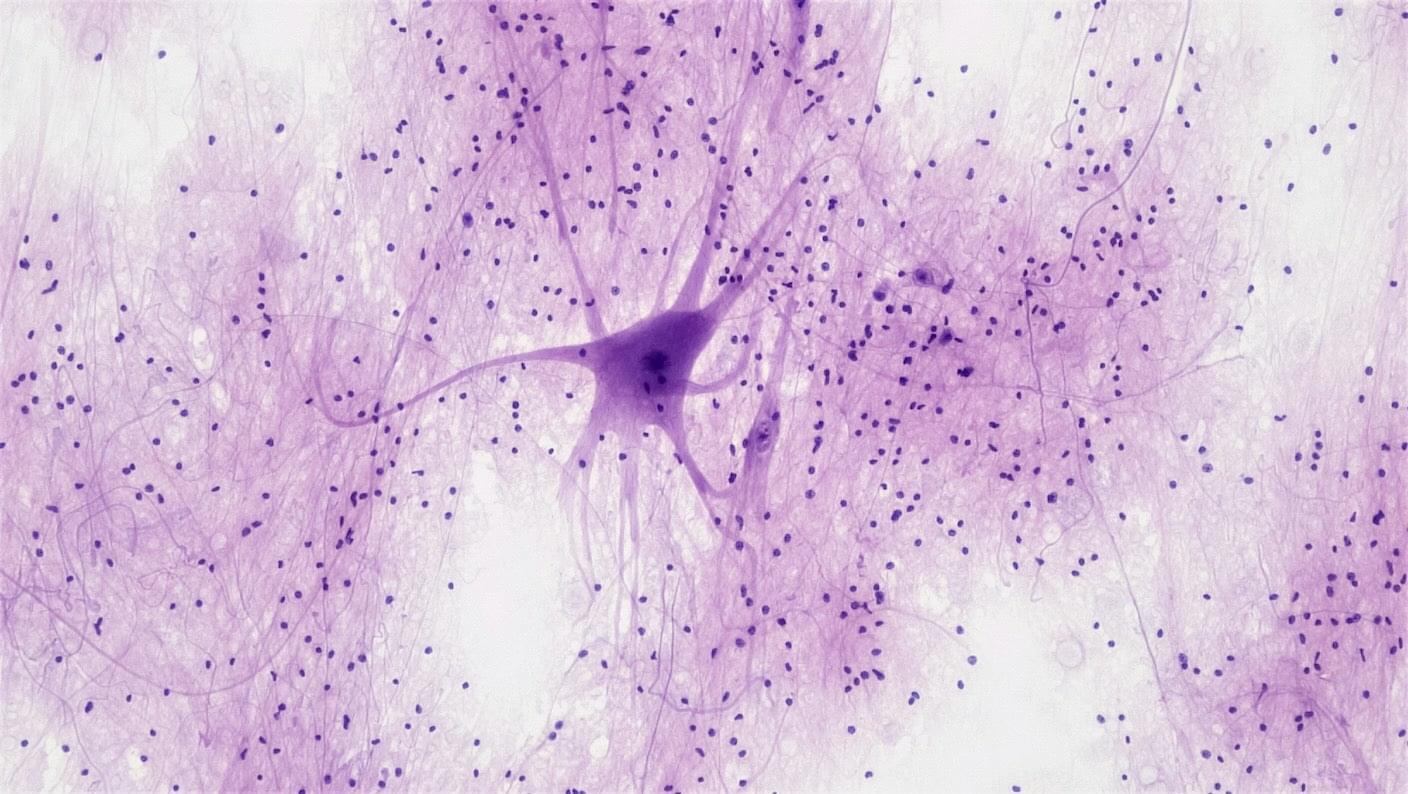

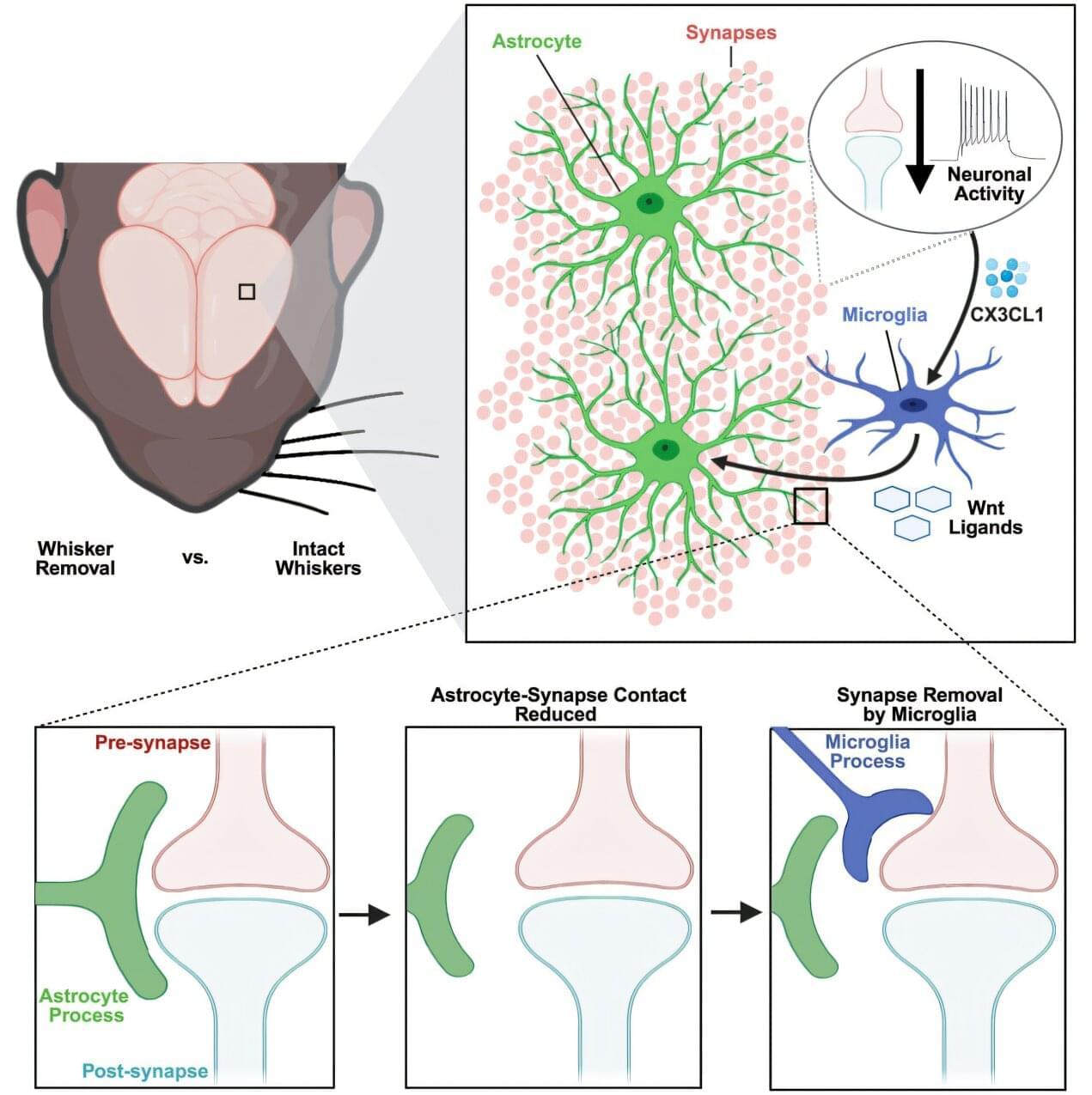
A study by Dorothy P. Schafer, Ph.D., and Travis E. Faust, Ph.D., at UMass Chan Medical School, explains how two different cell types in the brain—astrocytes and microglia—communicate in response to changes in sensory input to remodel synapses, the connections between neurons.
Published in Cell, these findings are in an emerging area of interest for neurobiologists who want to understand how different cells in the brain interact to rewire the brain.
This novel mechanism has the potential to be targeted by translational scientists hoping to one day prevent synaptic damage incurred during neurodegenerative diseases such as Alzheimer’s or ALS as well as age-related cognitive decline. It may also lead to new insights into neurodevelopmental and psychiatric disorders such as autism and schizophrenia, where the brain’s circuit refinement process may have been compromised during development.
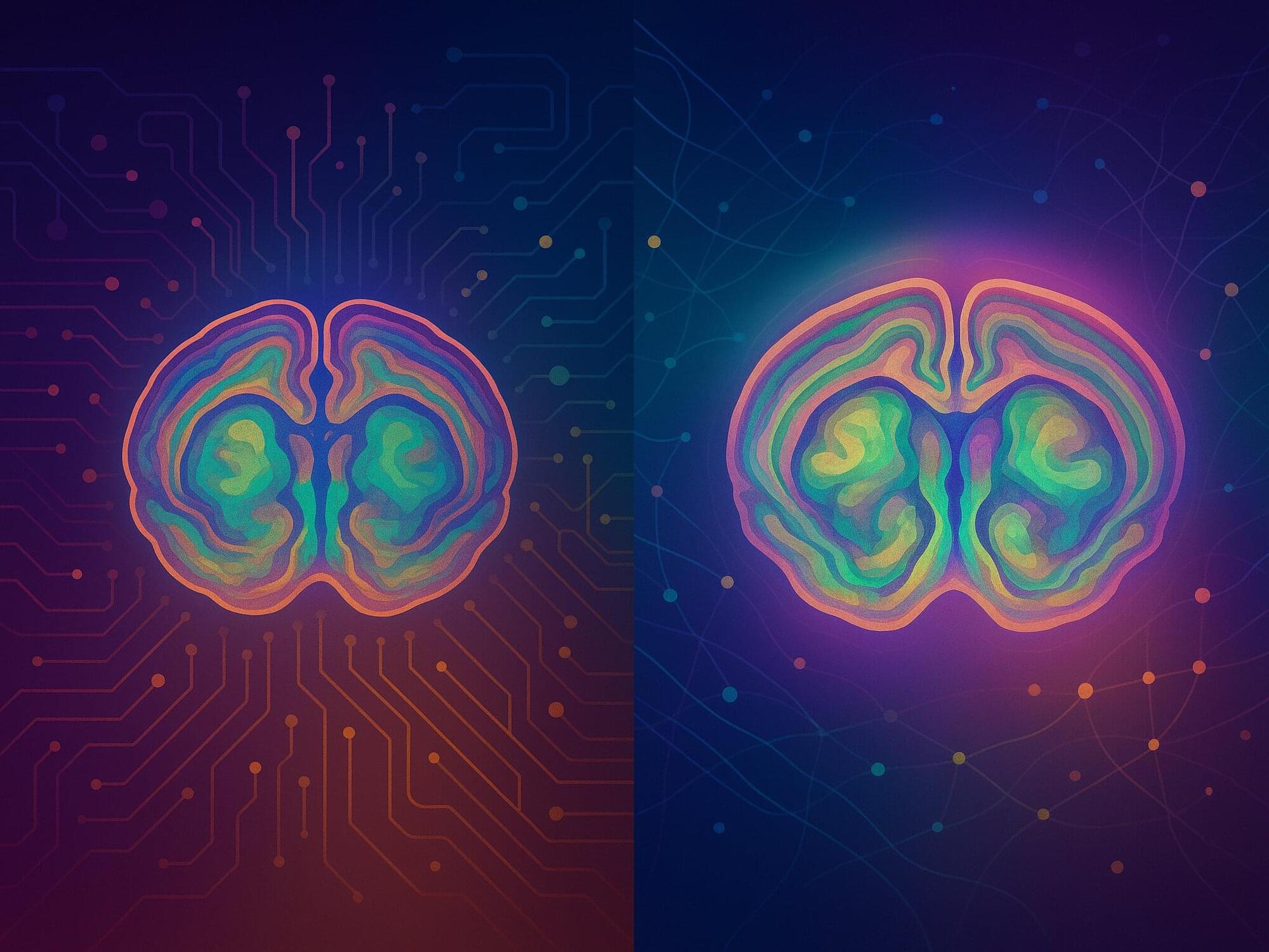
In a powerful fusion of AI and neuroscience, researchers at the University of California, San Francisco (UCSF) and Allen Institute designed an AI model that has created one of the most detailed maps of the mouse brain to date, featuring 1,300 regions/subregions.
This new map includes previously uncharted subregions of the brain, opening new avenues for neuroscience exploration. The findings were published in Nature Communications. They offer an unprecedented level of detail and advance our understanding of the brain by allowing researchers to link specific functions, behaviors, and disease states to smaller, more precise cellular regions—providing a roadmap for new hypotheses and experiments about the roles these areas play.
“It’s like going from a map showing only continents and countries to one showing states and cities,” said Bosiljka Tasic, Ph.D., director of molecular genetics at the Allen Institute and one of the study authors.

Adults with ADHD who recognize and regularly use their personal strengths report better well-being, improved quality of life and fewer mental health difficulties, according to a new international study.
During October’s ADHD Awareness Month, which this year focuses on “the many faces of ADHD,” researchers from the University of Bath, King’s College London, and Radboud University Medical Center in the Netherlands have delivered the first large-scale study to quantify psychological strengths in ADHD.
The study, published in Psychological Medicine, compared 200 adults with ADHD and 200 adults without ADHD on how much they identified with 25 positive traits—including creativity, humor, spontaneity and hyperfocus—defined by researchers as “things [they] do well or best.”

Researchers at UCL Institute of Education, King’s College London, Harvard T.H. Chan School of Public Health, and UCLA report that perceived social threats in early adolescence are associated with altered connectivity in default mode, dorsal attention, frontoparietal, and cingulo-opercular networks and with higher mental health symptom scores months later.
Adolescence is a difficult age, a time of rapid neurobiological and psychological change amidst shifting social standing. In 2021, CDC reported that 40% of U.S. high school students struggled with persistent sadness or hopelessness, and more than one in six had made a suicide plan.
Perceived threats in a child’s social environment, within the family, at school, and in the neighborhood, are known risk factors for adolescent psychopathology.

A good night’s sleep has long been understood to help us consolidate new memories, but we don’t understand how. Associations with negative feelings like fear or stress can improve recall, but intentionally trying to remember can also be effective. But these two mechanisms are very different—one involuntary, one deliberate. Which influences memory most?
To investigate, researchers asked participants to remember or forget words, some of which had negative emotional associations. They found that instructions improved recall more than emotion.
“What we intend to remember and to forget can be powerful,” said Dr. Laura Kurdziel of Merrimack College, lead author of the article in Frontiers in Behavioral Neuroscience. “We have more control over our memories than we often think we do.”
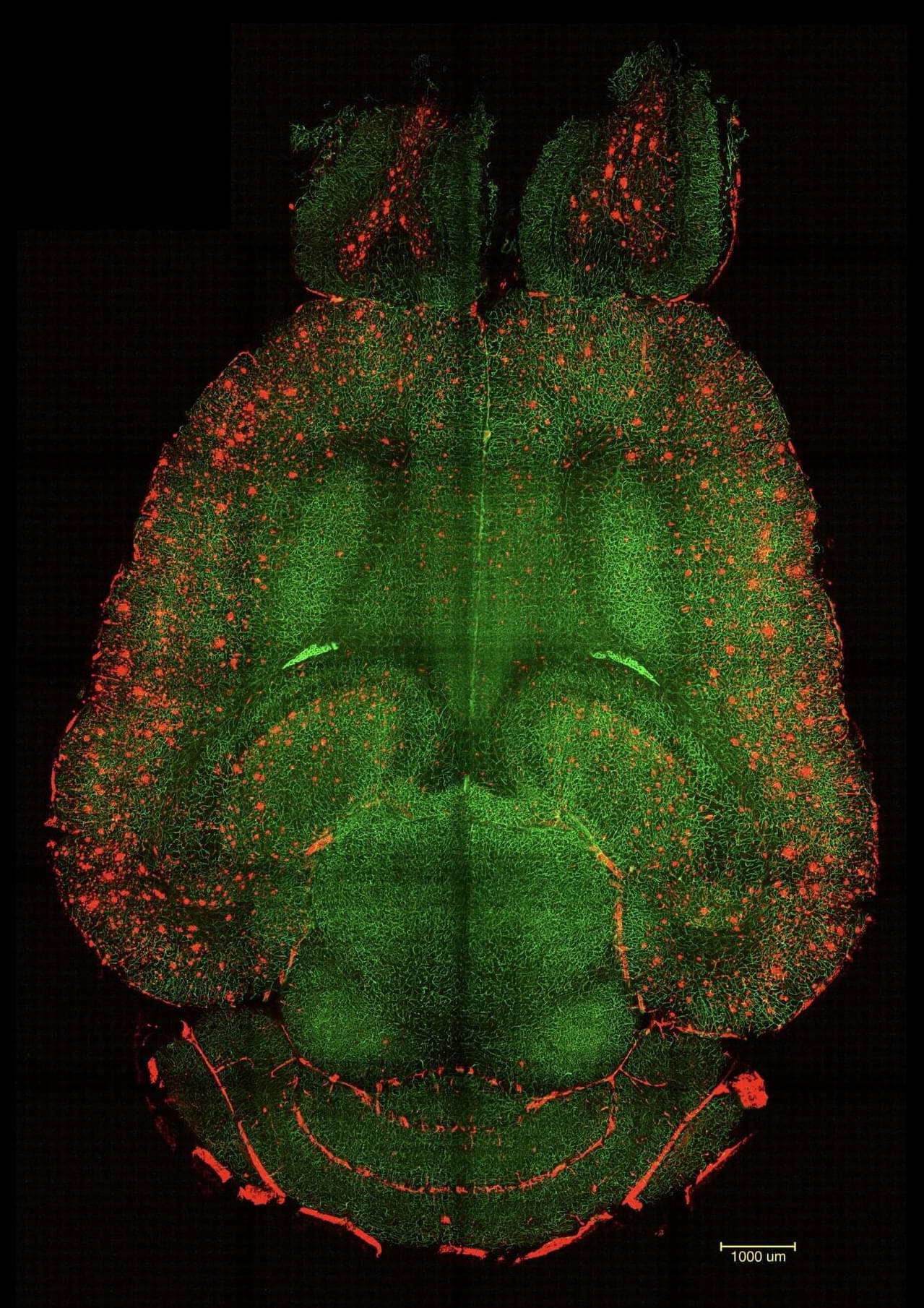
A research team co-led by the Institute for Bioengineering of Catalonia (IBEC) and West China Hospital Sichuan University (WCHSU), working with partners in the UK, has demonstrated a nanotechnology strategy that reverses Alzheimer’s disease in mice.
Unlike traditional nanomedicine, which relies on nanoparticles as carriers for therapeutic molecules, this approach employs nanoparticles that are bioactive in their own right: “supramolecular drugs.” The work has been published in Signal Transduction and Targeted Therapy.
Instead of targeting neurons directly, the therapy restores the proper function of the blood-brain barrier (BBB), the vascular gatekeeper that regulates the brain’s environment. By repairing this critical interface, the researchers achieved a reversal of Alzheimer’s pathology in animal models.